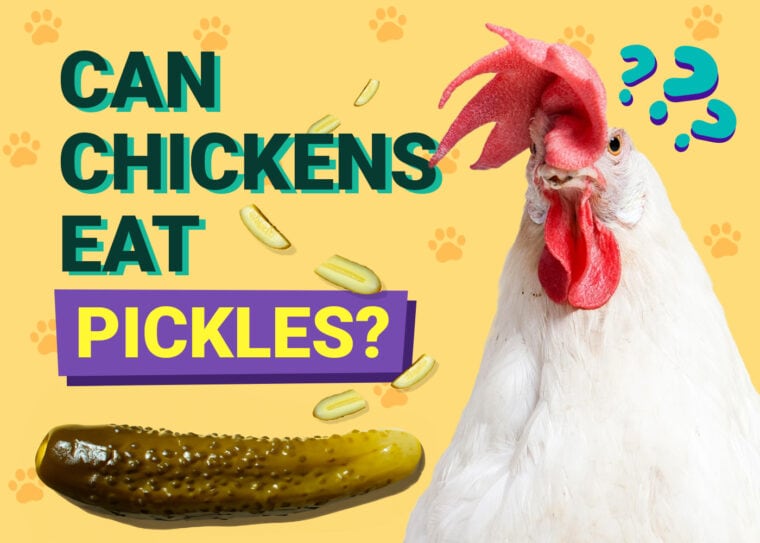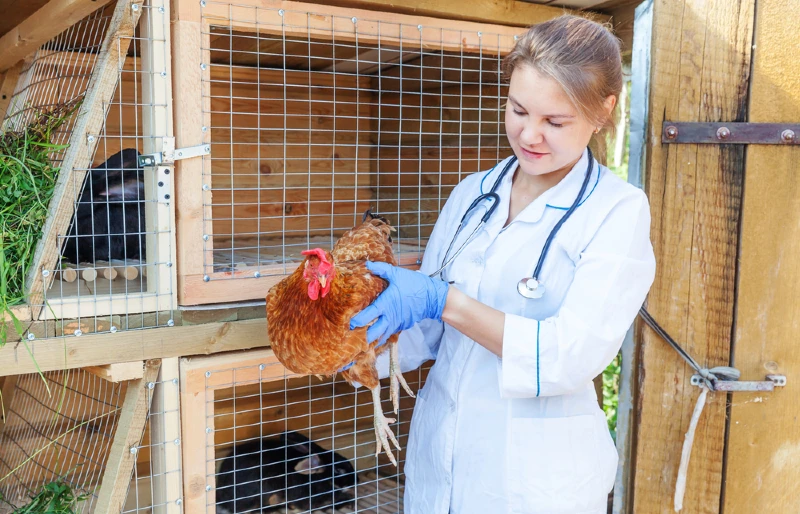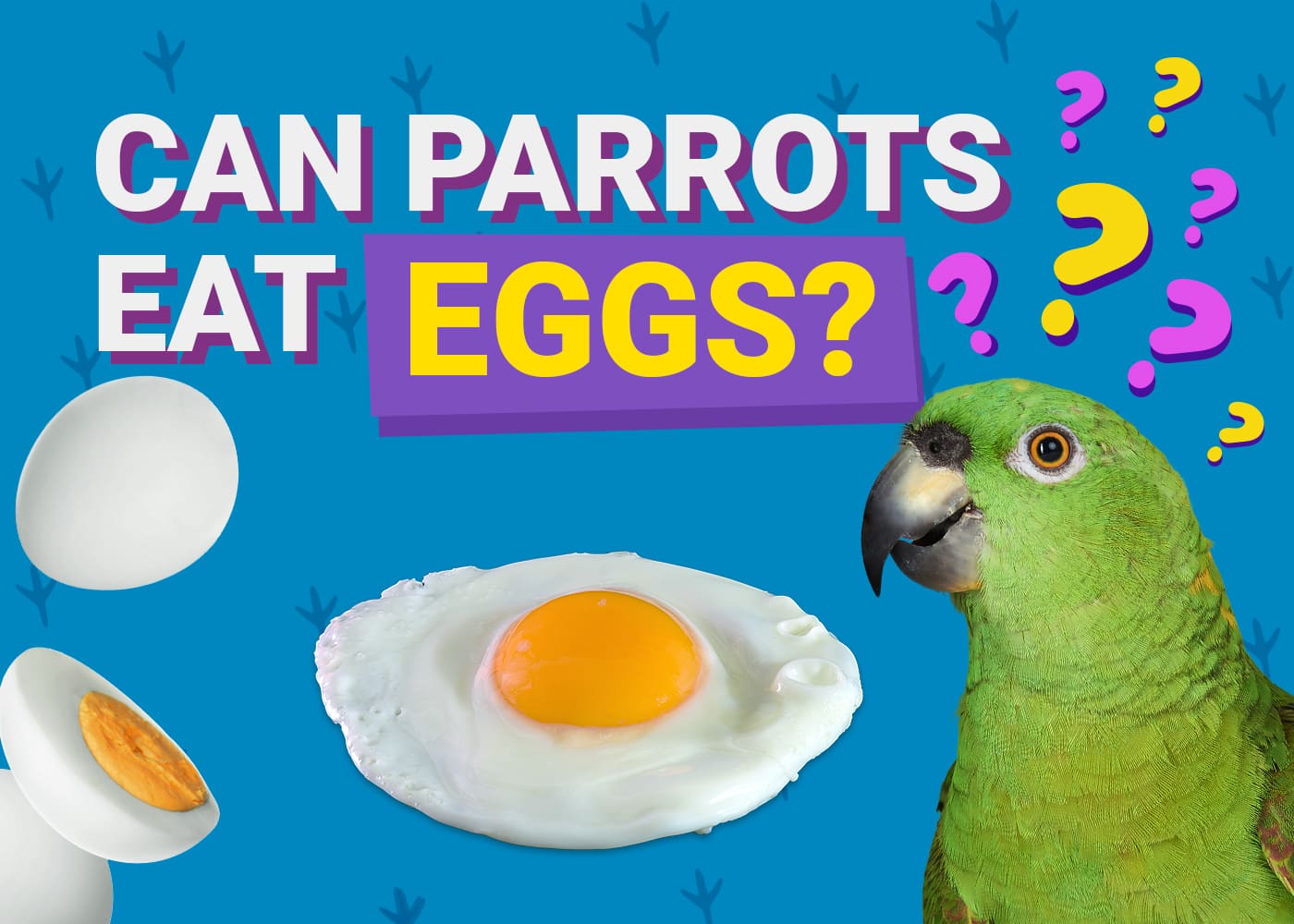
Our chickens eat all kinds of oddities. If you own a flock, you know all about it. But what can they eat and what’s not so healthy when it comes to so-called “people foods?” Pickles are simple, right? Just some cucumbers are thrown into a special preserving concoction.
But that concoction is part of the problem. Nothing about a pickle is toxic, but there are better choices for a midday chicken snack. It is simply not good for chickens to have pickles regularly. Tossing a couple of pickles your chicken’s way will be perfectly acceptable, but don’t make it a habit.
Chickens Can Eat Pickles?
To understand why or why not chickens can eat pickles comes down to ingredients. We all know your flock can gobble up goodies without regard for health. Pickles are not toxic to your chickens in any way—they simply aren’t an ideal snack.
Chickens require a protein-rich diet with lots of vitamins and minerals. Even though pickles are essentially just fancy cucumbers, the problem isn’t with this vine veggie—it’s the juice or brine that makes it questionable.
Pickle Nutrition Facts

Amount Per 1 medium pickle
| Calories: | 7 |
| Sodium: | 785 mg |
| Potassium: | 15 mg |
| Carbohydrates: | 1.5 g |
| Protein: | 0.2 g |
As you can see, pickles don’t contain much nutritional value, but they are certainly delicious.
Pickles: What’s In the Jar?
Let’s break down the ingredients.

Pickles Are Full of Sodium
This high sodium content might be yummy for us to munch on for a late-night snack, but too much is bad news. If you have canned pickles before, you know the ingredients inside. If not, you can at least contest that they’re very salty.
Folks add salt to pickling brine to aid in the development of lactic acid bacteria. It greatly assists the canning process, leading to successful jarring. While this process is necessary, these extra ingredients aren’t so fabulous for our group of feathery gals.
If your chickens eat too much sodium in their diet, it can cause the manifestation of poor health among your flock. But you likely don’t plan to toss a jar of pickles to your chickens as a feed replacement.
What Does Too Much Salt Do to Chickens?
Too much salt isn’t harmless. It can severely impact egg production, particularly in firmness. An overabundance of sodium chloride reduces the carbon dioxide tension and concentrations of bicarbonate and calcium in the system.
Too much sodium chloride in the diet can cause the weakening of shell walls or shell-less eggs. This combination of changes affects the fluid surrounding the egg inside the shell gland. This leads to egg defects and potential problems with your hens.

Egg Binding
Issues such as this can cause health declines in your chickens, particularly if they have a bound egg as a result.
Other causes of egg binding include:
This serious condition can lead to several signs that include:
Bound eggs can lead to infections, prolapse of the uterus, internal bleeding, and eventual death. This condition can be life-threatening. It’s best to prevent it where you can, but sometimes there is little you can do—bound eggs happen sometimes.
If you suspect a hen has a stuck egg, there are ways to help them at home. You can help your hen pass the egg. However, if treatment is unsuccessful, it’s time to call the vet.
Inadequate Laying
Since too much salt directly impacts egg production, it can lead to inadequate egg laying. While salt can be to blame, poor laying is often a result of calcium deficiency. Salty diets definitely contribute, too.
However, it can stem from a number of sources, like:
Chickens Liking Pickles—It’s a Gamble
Luckily, these tangy cucumbers won’t hurt in moderation. In fact, most chickens won’t have any interest in eating pickles. However, if you have chickens that act as garbage disposals when they’re eating food, they might be interested.
In reality, having a pickle or two won’t kill your hens. But like anything else, your chickens will make a snack out of it if they can—and all the other scraps, too. It’s simply not good for chickens to have pickles regularly.
Importance of Proper Chicken Diet
Whether you have your chickens for egg or meat production, a healthy diet is the root of a thriving flock. Feed your chickens a primary diet of species-specific feed. In addition, let your chickens free range as much as possible.
If that isn’t in the cards, always ensure they have their daily dose of fresh seeds, fruits, veggies, grains, and grasses. Remember that chickens love bugs too! So if they lack foraging space, make up for it with store-bought selections.
The better your chicken’s diet is, the higher the egg production will be. Plus, it helps meat chickens maintain healthy muscle mass.

Conclusion
Everything in a jar of pickles is perfectly safe from the dill to the cucumbers to the vinegar to the garlic! It’s that pesky salt that’s the problem. If you toss out a few pickles among other scraps on the lawn, your chickens are fine to pick at their leisure.
Moderation is key. Those salty pickles will cause problems for your chickens if they are a daily habit—no need to make it one. There are plenty of other fruits, veggies, and grains they can enjoy to mix things up in addition to their daily feed rations.
Featured Image Credit: skyradar, Pixabay










